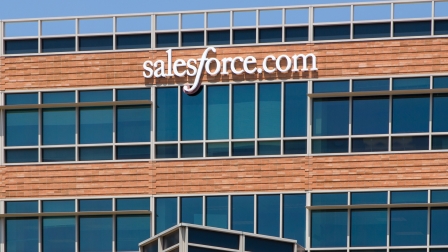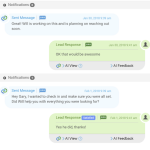Salesforce buys DMP Krux
The company’s latest acquisition brings in-house the data needed to conduct large-scale audience segmentation and targeting.
Salesforce is continuing its buying spree with today’s announcement that it is buying data management platform (DMP) Krux.
Although deal terms were not disclosed, The Wall Street Journal and others are reporting the price tag was around $700 million. The announcement was made Monday, just before today’s opening of Salesforce’s big Dreamforce conference in San Francisco.
The purchase means that Salesforce will be able to better compete with the DMPs at its major marketing cloud competitors, such as Oracle and Adobe, and brings into the company the data needed for large-scale audience segmentation and targeting for ads.
Krux, founded in 2010, bases its targeting on its own very large customer relationship management (CRM) system combined with other sources of data, so that personalized marketing and consumer experiences can be delivered to specific types of users across devices. In a blog post announcing the sale, CEO and co-founder Tom Chavez wrote that:
“Krux will extend the Salesforce Marketing Cloud’s audience segmentation and targeting capabilities to power consumer marketing with even more precision, at scale. In addition, Krux will feed Salesforce Einstein with billions of new signals, enabling companies to be even smarter about their customers.”
Einstein has lent his name to Salesforce’s recently launched artificial intelligence layer, which is now embedded throughout the company’s sales, marketing, service and other clouds.
Forrester analyst Brandon Purcell pointed out that “artificially intelligent systems like Einstein require massive amounts of ‘training’ data to learn and be useful.”
“With the acquisition of Krux,” he added, “now Salesforce has its own enormous repository of online consumer behavior data with which to train Einstein.”
“In the race for AI-dominance, the barrier to entry is access to big data. [CEO and founder Marc] Benioff knows this well, and the acquisition of Krux in addition to Salesforce’s existing data puts it well above this barrier.”
PundIT analyst Charles King emailed me that Krux will allow Salesforce customers “to finely tune customer outreach, which should improve [its] competitive positioning against Adobe” and Oracle. On the B2B side, Oracle launched in August what it described as “the largest B2B audience data marketplace.”
King added that, “over the past year or so, Salesforce has consciously broadened its solutions and service beyond its traditional CRM offerings,” largely through acquisitions.
“That’s caused some concern among [Salesforce] shareholders,” he wrote, “but I expect the company would argue that it is simply evolving in accordance with its customers’ needs and to stave off competitors.”
Krux has worked with Salesforce through its audience-targeting Active Audiences, which it introduced in March of last year. Active Audiences has drawn on information from Salesforce’s crown jewel, the CRM, to target identified customers without having to rely on cookies, which don’t work across devices. Active Audiences has enabled campaigns on more than a hundred ad networks through integration with such ad tech and data providers as LiveRamp, LiveIntent, Neustar and Viant, as well as Krux.
Gartner VP Andrew Frank told me that the acquisition “wasn’t surprising” in that it had been rumored, plus Salesforce was “overdue” to buy a DMP. Given the alliance with Krux through Active Audiences, he noted that the purchase doesn’t necessarily add capabilities, as it offers customers “a single solution.”
Last December, Salesforce picked up configure/price/quote provider SteelBrick, and it bought predictive software provider PredictionIO in February. In April, it acquired AI startup MetaMind, followed by data intelligence startup Implisit Insights in May, ecommerce platform Demandware in June (which became its Commerce Cloud), and data analytics startup Coolan in July.
In August, the company acquired business intelligence provider BeyondCore, which has said its system is so smart it knows the best questions to ask, in addition to supplying the answers. In the same month, the company also acquired word processing app Quip.
Marketing Land – Internet Marketing News, Strategies & Tips
(34)















